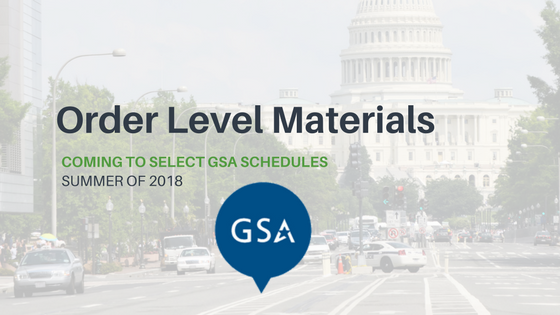Mass Modification to Incorporate OLMs
Order-Level Materials Now Featured on Schedules

The new GSAR incorporating OLMs into the Multiple Award Schedule program should simplify buying and selling procurement solutions through MAS.
Quick Recap: OLMs, or Order-Level Materials are supplies or services. Agencies acquire OLMs in direct support of a task or a delivery order on an existing Schedule contract or BPA. Types, quantities, and prices of OLMs are not known or established when contracts and BPAs are awarded.
What’s New: This authority adds flexibility to existing Schedules programs on other commercial IDIQ vehicles. It also saves time and money, decreases the number of new contracts, and decreases barriers posed by unanticipated needs.
Opting-in: To start providing OLMs, partners need to accept a mass modification which adds the terms and conditions to current contracts and verify subscriptions to the MAS Interact Group. When contractors opt in, they can compete for more orders and reduce additional bid and proposal costs.
The removal of some barriers to entry into the federal marketplace means that small business are better able to compete for orders.
As always, if you have questions, feel free to contact us at 301-913-5000 or ad***@***sa.com
